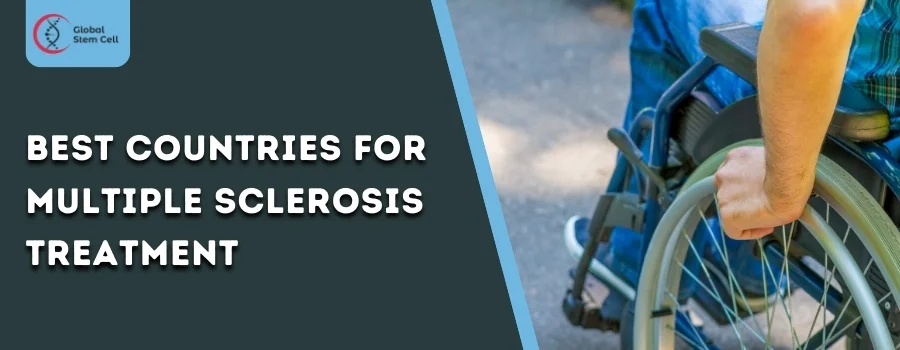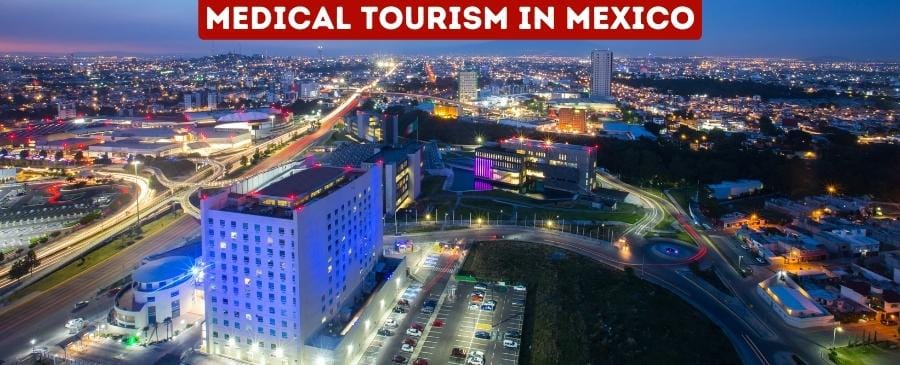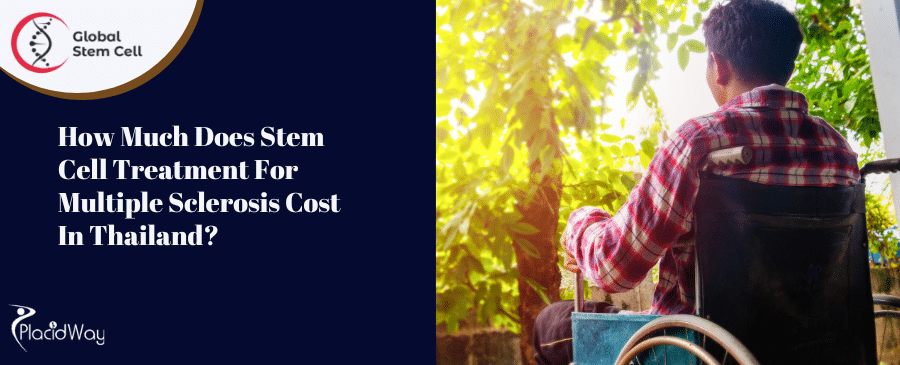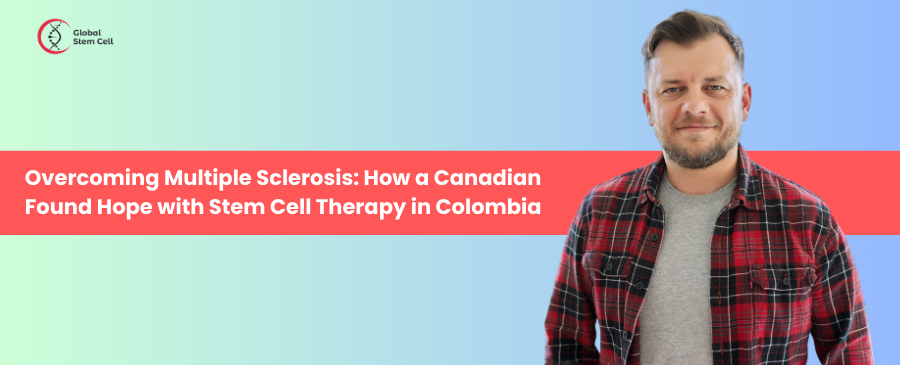
Today, we’re talking about something really important called Multiple Sclerosis, or MS. MS affects the central nervous system, which is like the main control center for your body. Think of your nerves like electric wires, and MS is like the cover around those wires getting damaged. This makes it hard for your brain to send messages to the rest of your body.
Are You Eligible for Stem Cell Therapy for MS?
Where you choose to get treatment for MS can make a big difference. It’s not just about having a good doctor it’s also about the healthcare system, the treatments, and the support you get. Some countries are ahead in MS research and offer new treatments like Stem Cell Therapy that aren’t available everywhere. Let’s explore some of the best countries for MS treatment and see what makes them great.
Best Countries to get Multiple Sclerosis Treatment in 2024
Here are the best countries that are leading the way in treating MS in 2024. We’ll focus on regenerative medicine, which helps repair damaged tissues.
Contenido
México

Mexico is becoming well-known for MS treatments, especially stem cell therapy. Here’s why Mexico is a good option:
- Affordable Treatments: Treatments in Mexico are cheaper than in the U.S., but still high-quality.
- Turismo médico: Mexico has many advanced clinics that are used to treating international patients.
- Quick Access to Treatments: Stem cell therapies are often available faster because of less strict regulations.
- Médicos con experiencia: Many doctors in Mexico have trained internationally and specialize in treating MS.
- Convenience for North Americans: Mexico is close to the U.S. and Canada, which makes traveling easy.
- Atención personalizada: Smaller clinics often provide more personal attention and customized treatment plans.
Mejores Centros de Medicina Regenerativa en México
Tailandia

Thailand is gaining recognition for MS treatment, especially using stem cell therapy. Here’s why Thailand is a top choice:
- Modern Hospitals: Hospitals like Bumrungrad International are equipped with advanced technology for treating MS.
- Médicos expertos: Thai doctors are well-trained and many have studied or worked abroad.
- Asistencia asequible: Treatments in Thailand are much cheaper than in Western countries.
- Enfoque holístico: Thai hospitals often combine modern medicine with traditional treatments like acupuncture to improve well-being.
- Medical Tourism Services: Thailand has a well-developed medical tourism industry to help international patients with travel and accommodations.
Centros de medicina regenerativa en Tailandia
India

India is a growing destination for MS treatment, especially regenerative medicine. Here’s why India is a great choice:
- Cost-Effective Care: Treatment in India is very affordable but still high-quality.
- Skilled Doctors: Many Indian doctors are internationally trained and speak English, making it easier for international patients.
- Advanced Hospitals: Hospitals like Apollo and Fortis have the latest technology for treating MS.
- Holistic Treatments: India offers Ayurveda and yoga, which can help MS patients manage symptoms and improve well-being.
- Easy Medical Visas: India makes it easy for patients to get medical visas for treatment.
Centros de medicina regenerativa en la India
Estados Unidos

The United States is known for its advanced MS treatments, especially with regenerative medicine. Here’s why the U.S. is a good choice:
- Top Research Centers: The U.S. has some of the best hospitals, like Mayo Clinic and Johns Hopkins, that are always working on new MS treatments.
- Tecnología avanzada: American hospitals have the latest technology to help diagnose and treat MS.
- Skilled Doctors: The U.S. has many doctors who are experts in MS and regenerative medicine.
- Strict Safety Rules: The FDA makes sure that treatments are safe and effective before they are offered to patients.
- Acceso a ensayos clínicos: Patients in the U.S. can join clinical trials to try new MS treatments early.
- Atención integral: The U.S. offers lots of support services like physical therapy and counseling to help MS patients.
Mejores centros de medicina regenerativa de EE.UU.
Colombia

Colombia is becoming known for its advancements in MS treatment. Here’s why Colombia is a good choice:
- Growing Research: Colombia is advancing in regenerative medicine with local and international collaborations.
- Médicos con experiencia: Many doctors in Colombia are internationally trained and specialize in treating MS.
- Atención centrada en el paciente: Colombia’s healthcare system offers treatment as well as rehabilitation and counseling.
- Acceso a ensayos clínicos: Patients can join clinical trials to try new treatments.
Principales centros de medicina regenerativa de Colombia
¿Cómo ayuda la Medicina Regenerativa en el tratamiento de la Esclerosis Múltiple?
Regenerative medicine is a promising area for treating MS. Here’s how it helps:
- Terapia con células madre: Stem cells can help repair damaged nerves affected by MS, helping restore function.
- Myelin Repair: Stem cells can help repair the myelin sheath, which protects nerves and helps them work better.
- Immune System Reset: Some stem cell therapies can reset the immune system so it stops attacking the body’s nerves.
- Reducir la inflamación: Stem cells can help lower inflammation, which slows down MS progression.
- Protecting Nerve Cells: Some treatments help protect nerve cells from further damage, helping patients keep their abilities.
Casos de éxito de la medicina regenerativa para la esclerosis múltiple
Preguntas frecuentes sobre el tratamiento con células madre de la esquelosis múltiple
¿Cómo funciona el tratamiento con células madre para la EM?
Stem cell treatment aims to replace the immune system with a new one that doesn’t attack nerve fibers, which can help slow or stop MS.
¿Quién es un buen candidato para el tratamiento con células madre?
Stem cell treatment is usually for people with aggressive MS who haven’t responded to other treatments. It works best for those in early or mid-stages of the disease.
¿Cuáles son los beneficios potenciales del tratamiento con células madre?
Stem cell treatment can reduce relapses, slow down disability, and improve quality of life by repairing nerves and balancing the immune system.
¿Cuáles son los riesgos del tratamiento con células madre?
There are risks, like infection and side effects from chemotherapy used in the procedure. It’s important to talk to your doctor about these risks.
¿Dónde puedo recibir tratamiento con células madre para la EM?
You can get stem cell treatment at specialized centers with experience in this procedure. Make sure the center provides full care before, during, and after the treatment.
Ready to take the next step in your MS treatment journey? Contact us now to explore advanced and personalized treatment options that can make a big difference in your life. Let’s fight MS together—reach out today!





